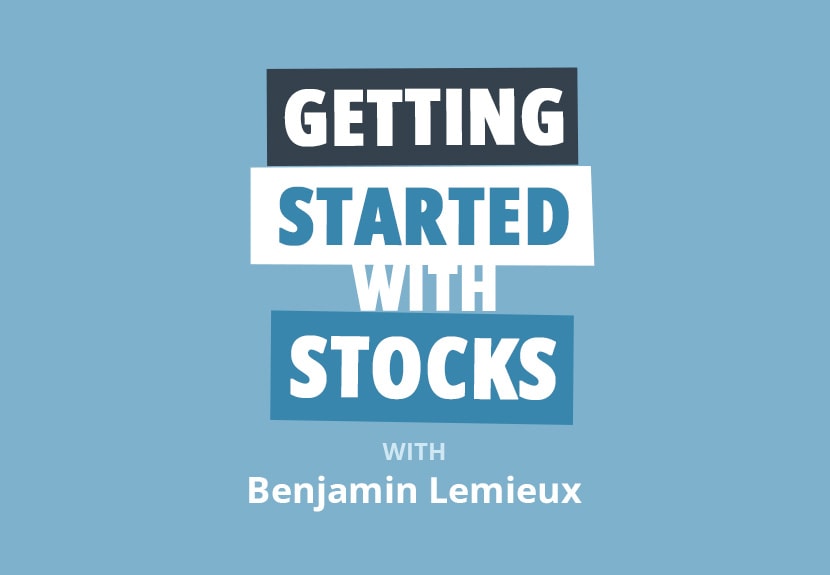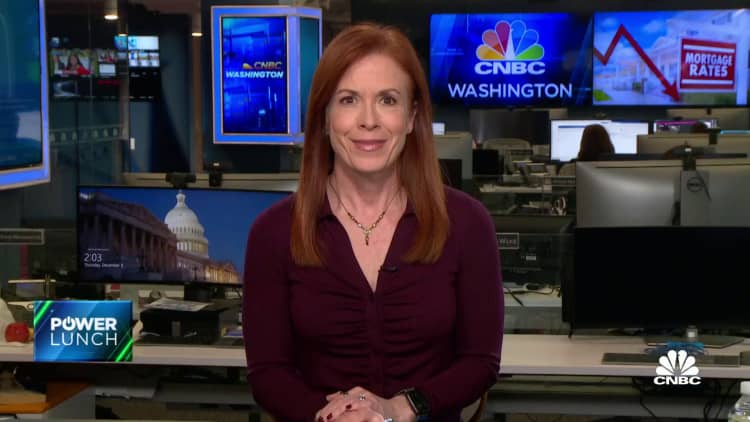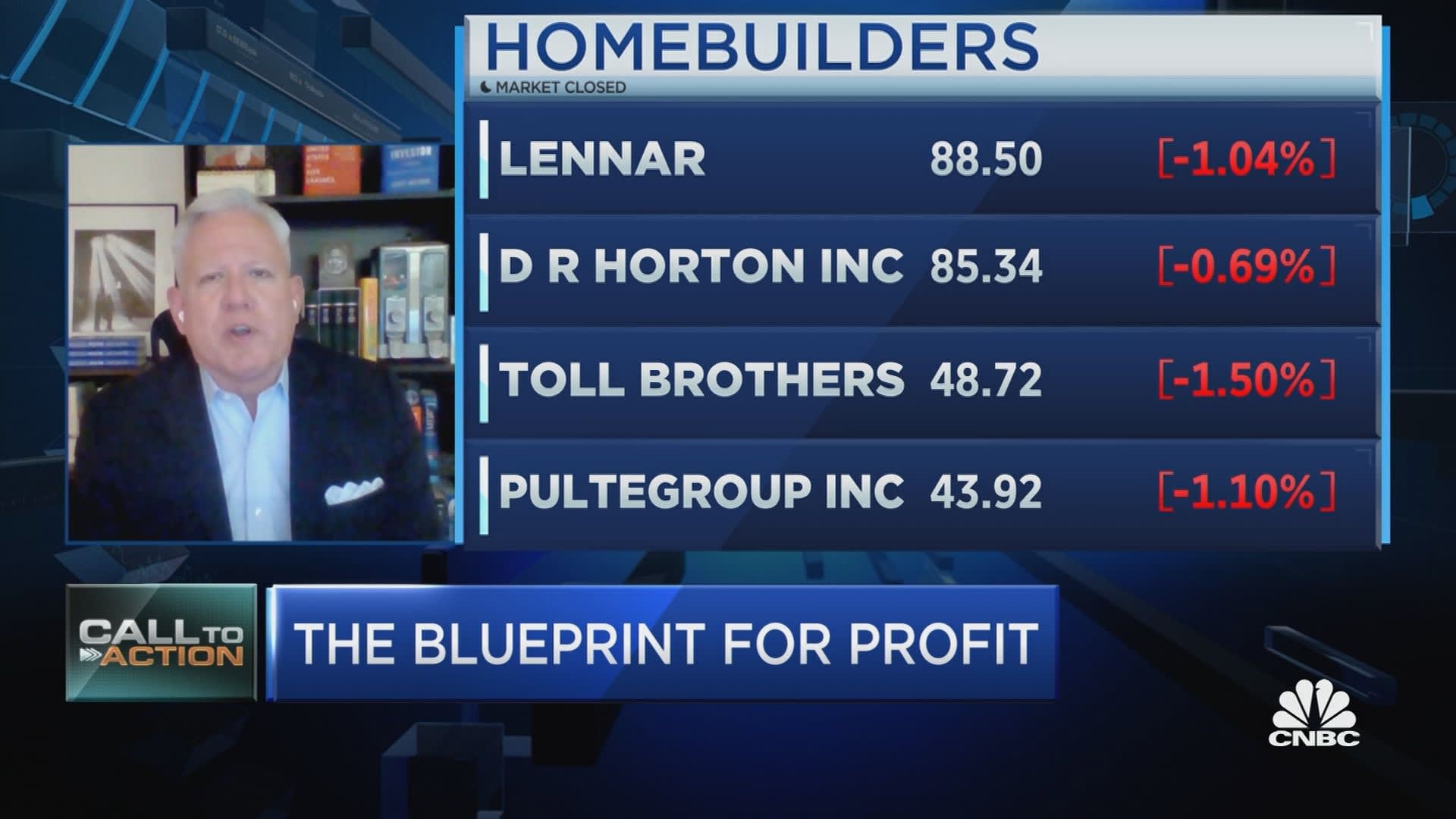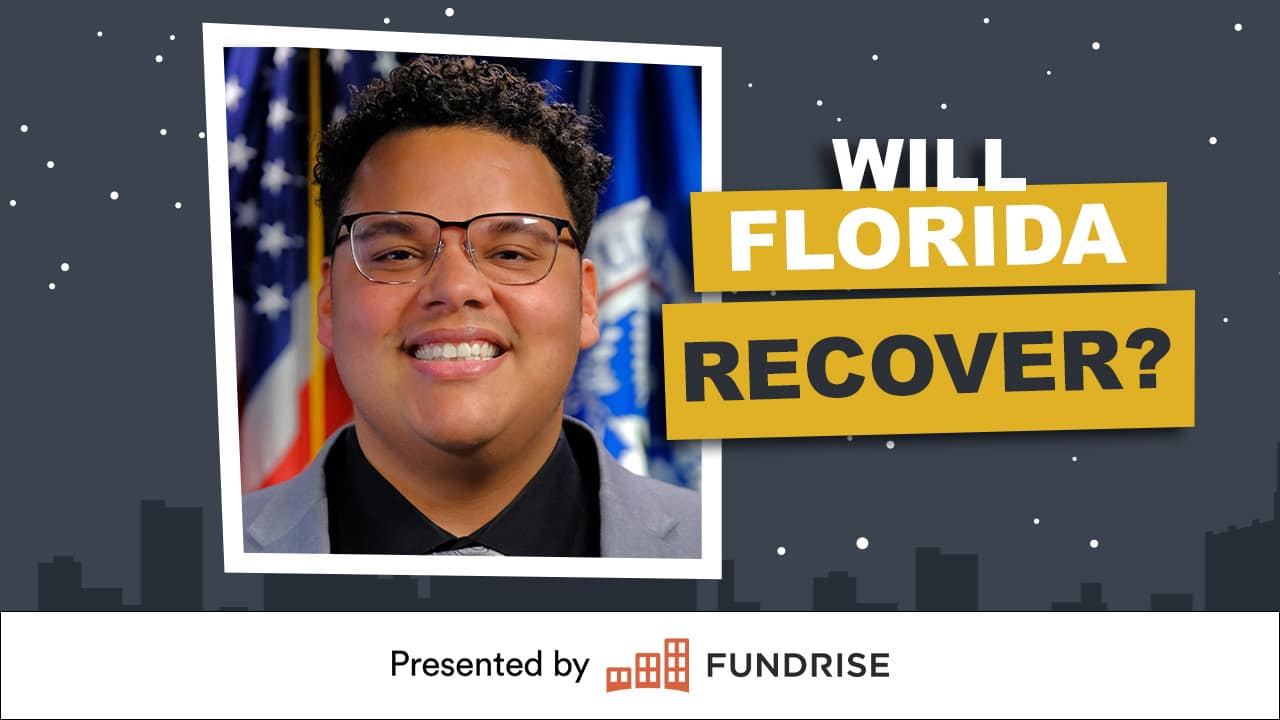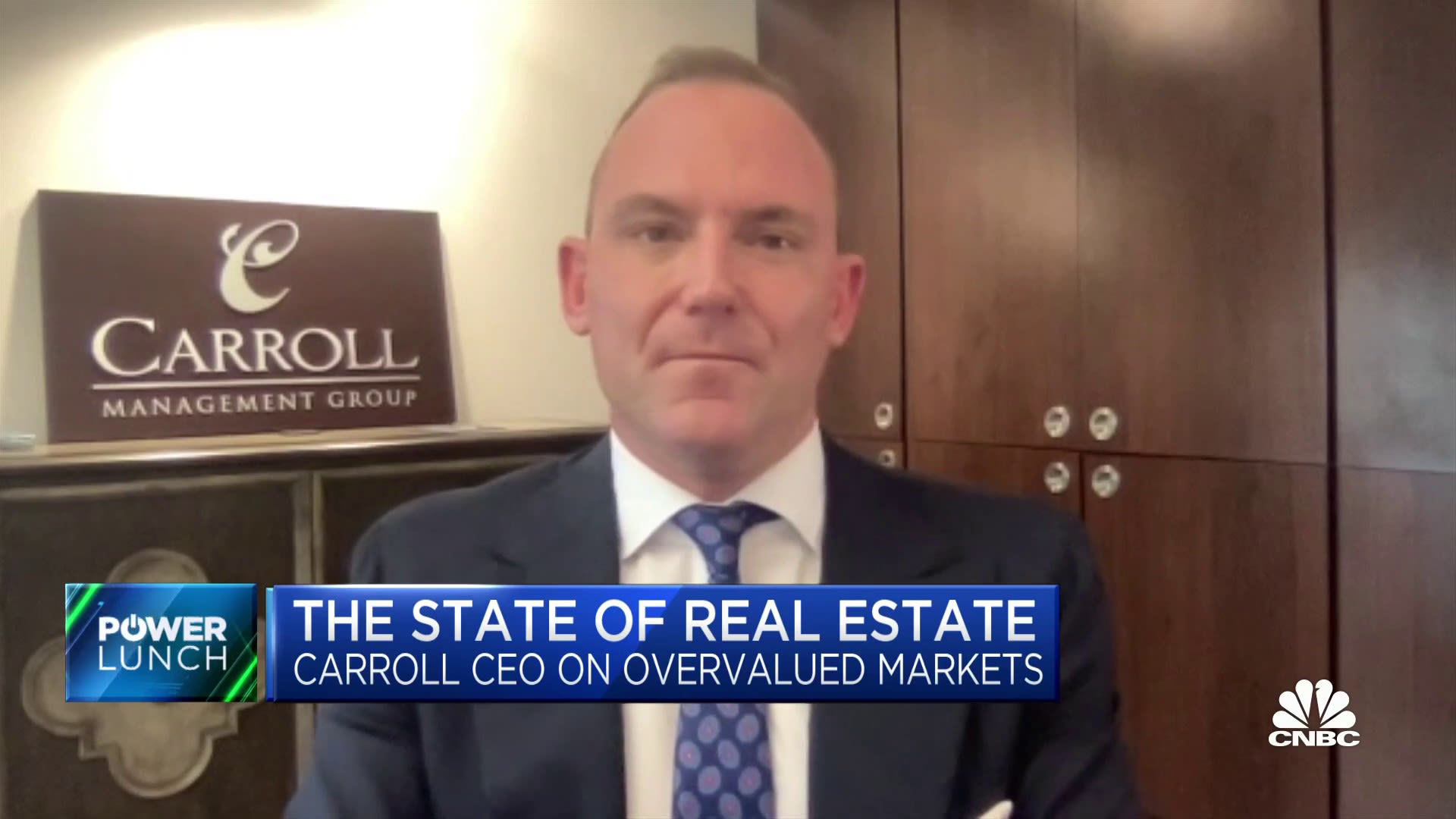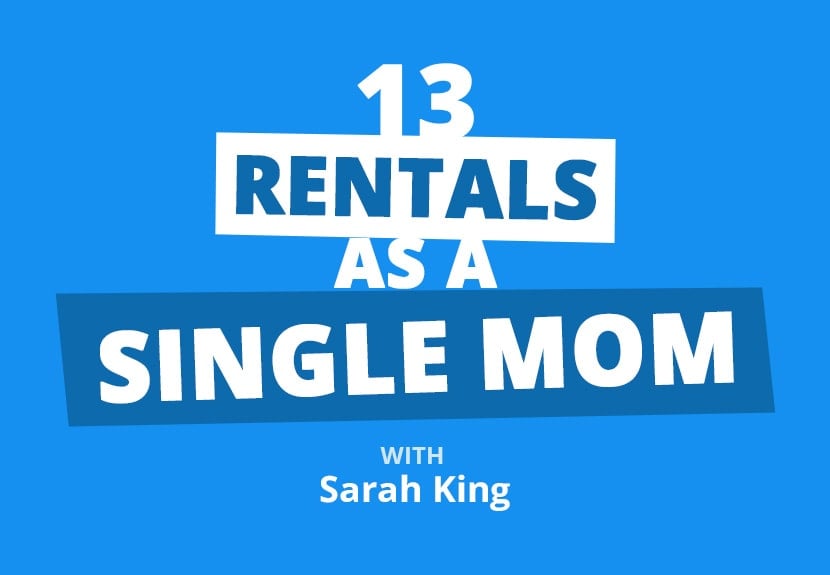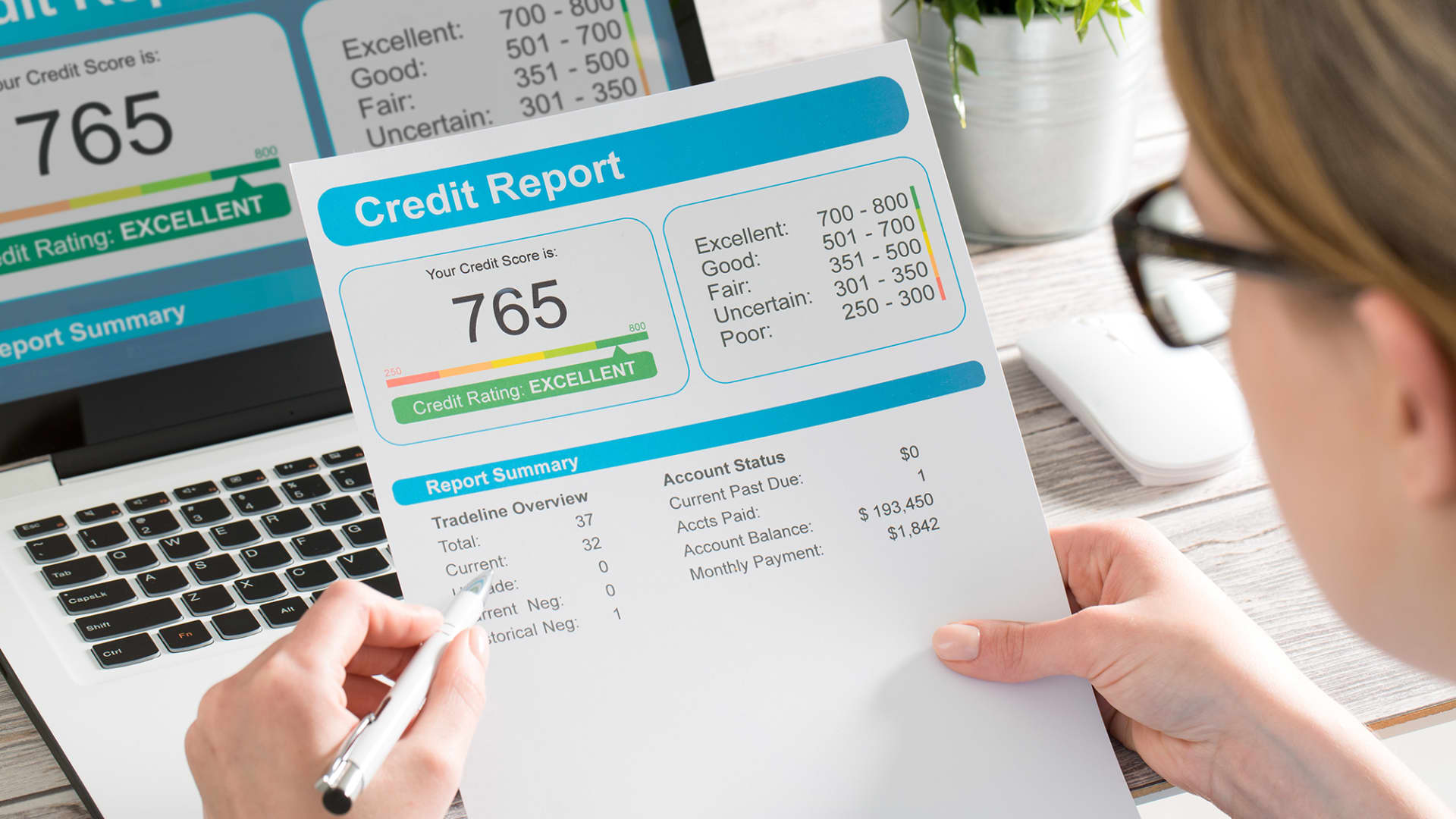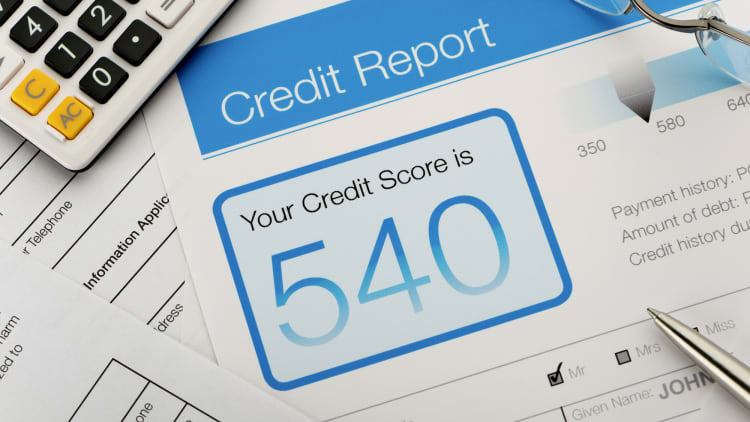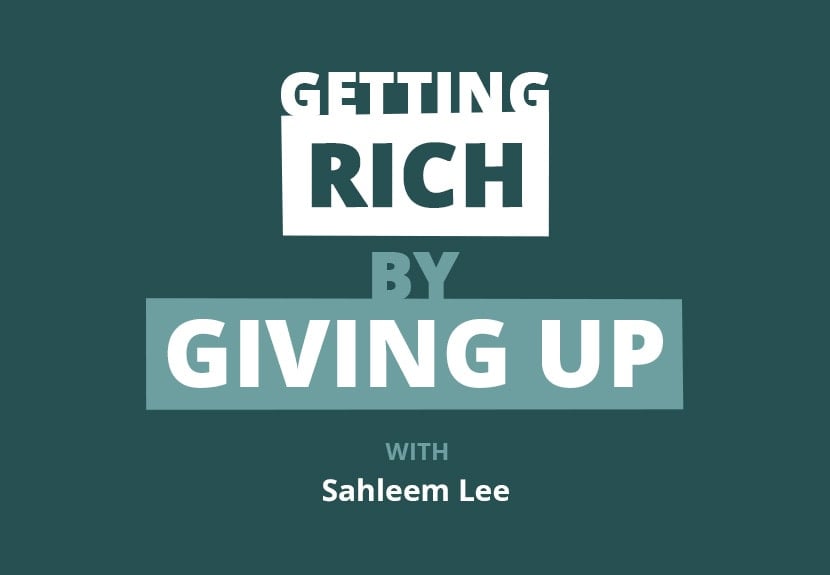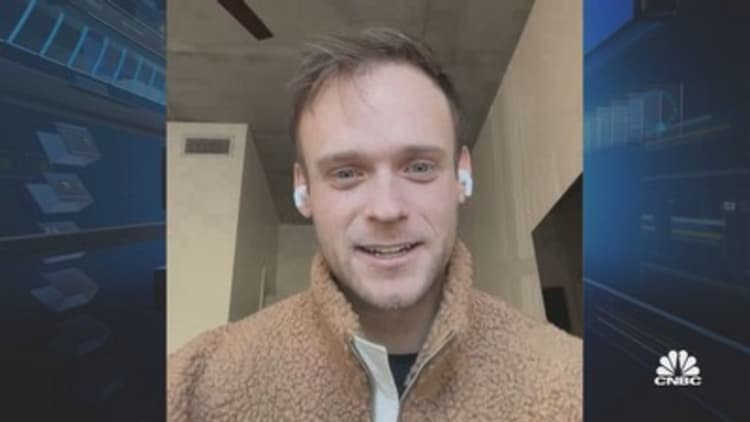Hard work comes with everything, and real estate is no exception. To achieve success, you must be willing to work hard and continue to work hard even when things get rough. That means viewing mistakes as lessons and being resilient enough to power through whatever life throws at you. Today’s guest, Sahleem Lee, started his real estate journey and almost gave it up, but after a three-year hiatus, he has come back even stronger. Now he has thirty-two wholesale deals under his belt.
Ashley:
This is Real Estate Rookie, episode 241.
Sahleem:
Our dreams were the confidence. We had dreams, we had dreams, we had no road blockages in front of us. Nothing could stop us from completing this property. There was something in our minds that say, “Hey, every obstacle that we faced, we’re going to jump over.” We did not care at all. And I believe that I still carry that to this day. I do carry that to this day actually. There’s nothing in my way that’s going to stop me from being myself.
Ashley:
My name is Ashley Kehr, and I am here with my co-host, Tony Robinson.
Tony:
And welcome to the Real Estate Rookie Podcast, where every week, twice a week, we give you the inspiration, information, and stories you need to hear to kickstart your investing journey. We’re here for those people that are new or looking to get started and expand and scale. So, before we jump into today’s amazing episode, I want to give a quick shout out to a person in the Rookie audience that left us a review on Apple Podcast. Their username is just a collection of letters and numbers. I’m not going to try and pronounce what that is, but it says, “BiggerPockets is a great resource, definitely worth listening to. Every episode has solid content, tangible stories from real rookie investors.” So, if you haven’t yet, please leave us an honest rating and review on whatever podcast platform it is you’re listening to. The more views we get, the more folks we can reach, and our goal is to reach as many people as we can. So, Ashley, we got a pretty good episode lineup for our listeners today, right?
Ashley:
Yeah, I mean, we could have gone on and on. We have Sahleem on today who goes into almost a James Dayner type story for those of you that listened to On The Market. Sahleem started out working at Chipotle and turned into a wholesaler. So, he goes through his journey, and my favorite part about the episode was that he tried real estate and then actually took kind of a brief pause from it from three years because he got into such a bad deal, and I think it just goes to show that even if you’re scared right now to get started because you’re afraid of having a bad deal, I love having people on that have this bad deal to show you that life goes on. You can overcome it. There’s different exit strategies. There’s different ways to pivot your business strategy. And so, I think Sahleem is a great example of that. And just his motivation, he’s just so cheerful, and he makes me want to get pumped up and go do something more.
Tony:
I know. I love Sahleem’s energy, and yeah, just his whole demeanor and his vibe. But Sahleem also I think in this episode provided a great example of how you can find a mentor, and there’s this phrase that we threw around called mutual mentorship near the end of the episode. So, if you’re a newer investor and your goal is to find that mentor to help you add skills or learn new things in the world of real estate investing, Sahleem is a perfect example for you to follow and model.
Sahleem:
I did. Yeah, I was a line cook. First, I started off as a line cook, then I was a kitchen apprentice. That didn’t work out too well. So, when I started off as a line cook, I was there for about two years before I actually got into the kitchen. The biggest thing for me was moving up. I always wanted to move up in Chipotle because everybody wanted the general manager spot. If you cooked well enough and you can wash dishes well enough and you can run a store, then hey, you can get a hundred thousand job at Chipotle. Most people don’t know that, but you can.
Ashley:
So, basically you have to do all the jobs in Chipotle and then become the general manager. Yeah, yeah.
Sahleem:
Yeah.
Tony:
Really? So, the general managers at Chipotle makes six figures?
Sahleem:
Yes. Yes.
Tony:
Wild. It’s the same thing for In-N-Out. There’s no In-N-Out where… Do you know what In-N-Out is?
Sahleem:
Burgers, a burger spot, right?
Tony:
Right, yeah, yeah, but In-N-Out’s like this-
Sahleem:
Like McDonald’s? Yeah.
Tony:
No, nothing like McDonald’s.
Sahleem:
I’ve only gone one time because we don’t have them New York either.
Tony:
No disrespecting In-N-Out like that. No, but In-N-Out, it’s like the White Castle of the West Coast, right? It’s all super fresh. Nothing’s frozen. But same thing, I have friends that have worked at In-N-Out. Even if you come into the base bottom level, you’re making pretty good money. Yeah, if you’re a manager for a location, it’s a pretty healthy six-figure salary for doing that. So, I do know people that have made a career out of In-N-Out Burger. It’s crazy.
Ashley:
Yes. So, Sahleem, what happened with Chipotle, and how did you get into real estate then? Where was that transition from wanting to be one of the chefs in the kitchen to now you’re buying property?
Sahleem:
Okay. So, interesting enough, I always wanted to be better. I always wanted better for somehow. I didn’t know how to make money, but I always heard about people buying and selling cars, always heard about the car auctions down in Philadelphia, Pennsylvania where I’m from. I’ve heard people say, “Hey, I just bought this car for $2,000.” And I say, “Hey, well, I work overtime all the time. My checks are maybe $1,300.” At that time, I probably had two to $3,000 bills. So, I say, “Hey, you know what? Let me save up some money to go buy me a car so I can go to the auction and make my own money.” So, I believe my first car was a Buick Century or a Buick Park Ave or something like that.
I went to the car auction. I had like $2,300, and from there I actually bought the vehicle. I knew how to fix cars all the time because I used to watch all my friends fix cars. So, it kind of led me to go into flipping cars. So, I bought one car, bought the Buick, next thing I bought a Pontiac, next thing I bought a Hyundai, a Honda. It just kind of tripled.
So, from me buying all these vehicles, I had a guy at my job, he said, “Hey, I always see you coming to work with new cars all the time.” He’s like, “How are you doing this?” I said, “Hey, I’m just going to the auction. I drive the cars for two weeks just to make sure that they’re good and stable, and then I go and post the car on Craigslist or OfferUp,” and I would sell the car and I would make almost like a 500 to a $1,000 profit depending on the vehicle it was. So, from there he said to me, he say, “Hey, why don’t you jump into real estate? I’ve heard about this real estate game. I’m going to this event.” I did not make the event because of work. I had to go to work. So, he told me, “Hey, come to this event next time.” I still didn’t make that event. I just wasn’t taking him serious. So, once he was like, “Hey, I have this thing called wholesaling,” and he was trying to tell me about wholesaling and I just wasn’t interested. I wasn’t interested at all.
Ashley:
Why do you think the reason was that you weren’t interested? Why do you think that was?
Sahleem:
I just don’t, it was too much. He was telling me about contracts and you have to assign it over to… It was too technical for me. The only thing I knew was HDTV. The only thing I knew was people on YouTube. All I knew was people on Facebook flipping houses, and that was my inspiration. I said, “Hey, I want to flip houses. I don’t want to wholesale.” So, we kind of brought our money together. We had a LLC together. I totally forgot the name of it because that was back in like 2015 or 2016, not too sure. Oh, actually I got it. It was called Growing Homes LLC. So, it was Growing Homes LLC. We were 50/50 on the LLC. We went to the Philadelphia sheriff’s auction and we purchased a property, and we didn’t know what we were getting into.
Ashley:
Before we even get into the property of what happened, how did you decide to partner with this person and did you… Being your first deal, because I know even for myself putting together my first partnership, it was very loosey-goosey, but can you talk about that? Did you guys have an operating agreement? Did you have your roles and responsibilities? What went good? What went wrong?
Sahleem:
So, I believe I rushed into that deal. I didn’t know anything about paperwork. I didn’t know anything about operating agreements. All I knew was LLC. That’s all I knew was limited liability company.
Ashley:
Did you set it up yourself?
Sahleem:
We set up ourselves.
Tony:
Yeah. If I can ask just one clarifying question, Sahleem. So, I mean, this is the same partner that was trying to get you to come out to this event and was trying to pull you into the world of real estate investing. So, I mean, you were hesitant at first, and it seems like you went from zero to a hundred because you went from I don’t want to do this wholesale thing to, okay, let’s form this partnership. So, what was that turning point where you finally said, “Okay, I think we should try and pursue this together”?
Sahleem:
We had a three-hour talk. He called me one night. I remember exactly where I was at. I was standing on the corner for three hours. He called me, and I was standing in the corner for literally three hours pacing back and forth talking to this guy, and he was just telling me just the world of real estate and just how we can change our wealth and just our mindsets. He said, “Hey, you already have the mindset. You buy broken down cars, you fix them up and then you sell them.” He said, “Do you know how much money you can make?” And at this time, I’m maybe 20, 21 at this time, and he’s telling me these things, and I’m not grasping all this stuff until the second hour of the conversation. He’s just telling me, “Hey, your Chipotle checks won’t have anything on real estate at all.” He said, “You want freedom in your life.” He said, “I know you hate coming to work sometimes.” He said, “I see you, you come in here, you drag. I know you don’t want to come to work sometimes, but if you do this stuff right here, you can set yourself up for the rest of your life.”
And once he kind of put that bug in my head, I continuously just pictured myself living the life that I wanted to live, living the life of having freedom, and doing all the things that I ever wanted to do in my life. At that time, I’m 20, 21, I’m thinking about material things at that time. I’m comparing my life with material things. That’s just what it is. So, from there, I took that bug and I said, “Hey, you know what? Let’s take this money. Let’s put this money together, and let’s go and buy this property.”
Tony:
Man. So, he was able to convince you, it sounds like, by pointing out, A, the skills that you had in yourself that you weren’t even really recognizing. He’s like, “You’re already doing this, you already have the ability,” but it sounds like what really kind of puts you over the edge was that he painted the picture of what your life could be like, and I think that, that, Sahleem, is the part that’s really interesting to me because… And, Ashley, we get this question all the time, right, how do I get my spouse on board, right, or how do I get my partner to want to come along with what I want to do, and it’s like maybe if you get really, really good at painting the picture of what your life could be like once you get there, that might be the key to actually unlocking that partnership.
Sahleem:
Yeah. Yeah, and that’s exactly what happened for me. I believe that key has switched and it never turned off. It never turned off. Even when I enlisted in the United States military, that never turned off. That stayed with me the whole time I was there. I always knew I wanted to rank up when I was in military, and even with ranking up, I always wanted to go to every duty station and do real estate. That was my goal.
Ashley:
Sahleem, thank you very much for your service. And what is the kind of timeframe that you served in the military? Was this before Chipotle? Was this after?
Sahleem:
This was after Chipotle.
Ashley:
So, I mean, we’ve got a lot to talk about here. We’re going to need longer than 40 minutes here. So, you’re at Chipotle and then you go and do your first deal in 2016, and then it was after that that you went into the military?
Sahleem:
Yes.
Ashley:
Do you want to continue to go into that auction deal, and maybe break down how you even buy a piece of property at auction?
Sahleem:
So, at that time, and in the Philadelphia auction, they have a book. So, they put out like a book every month. The beginning of the month, they put out a book. So, you have to go and pick the book up or sometimes they even mail them out if you’re on a mailing list.
Tony:
Like a physical book, like printed papers? That’s crazy.
Sahleem:
Printed paper book, yes. So, this is at that time. Now times have changed now. Technology’s a little bit more advanced. So, we opened a book, we found a property, and I forgot the exact price that… There wasn’t a starting price on the property, I believe. I don’t believe there was a starting price. But we looked at the property. We used to drive up and down the street just looking at the property. We would drive up and down the street just looking at it, and then one day we got out and we kind of walked because it’s a row home. In Philadelphia we have a lot of row homes, and they’re like two story, three story. So, we walked down the street, up the street again, checked the neighborhood out, and said, “Hey, oh, it’s a good deal. Hey, we got the money, so let’s go. So, let’s wait until auction date and let’s go to the auction.”
We went to the auction, we bidded on a house, and we won the bid. You have to put down 10% of the purchase price of the house and you have the next 30 days to come and you have to cover the rest of the bill. So, that’s what we did. I believe we were in the property within a week after putting down the 10%. We were in the property at the week. The property, it was a vacant property. It was trashed. So, this is a two-story property. You walk inside the front door, the beams were hanging down, there was trash everywhere. It was busted. The house was disgusting, I’m sorry. This is one of the worst houses I have ever encountered in my life, and I’ve been in so many old houses. There were raccoons everywhere.
Tony:
Raccoons inside the house?
Sahleem:
Yes. Yes, raccoons living inside the property.
Tony:
Did you have to evict them?
Sahleem:
They evicted themselves. They actually evicted themselves once we went there and sprayed some repellent in there. So, they actually left the property after that.
Tony:
It sounds like, Sahleem, once you guys purchased this property, it was a much bigger job than you had anticipated because had you seen inside prior to actually closing on the property or was it was just the outside view?
Sahleem:
No. It was just the outside, literally.
Tony:
Let me ask a couple questions here, Sahleem. So, what made you guys confident that this was a good deal, given that you weren’t able to inspect the inside of the property before buying it?
Sahleem:
I believe our dreams were the confidence. We had dreams, we had dreams. We had no road blockages in front of us. Nothing could stop us from completing this property. There was something in our minds that say “Hey, every obstacle that we face, we’re going to jump over it.” We did not care at all. And I believe that I still carry that to this day. I do carry that to this day actually. There’s nothing in my way that’s going to stop me from being myself, from me jumping into these properties or me doing anything in life. Me and my girlfriend were skydiving like a week, two weeks ago. I was so scared. I wanted to tell her, “Hey, I don’t want to get on this plane. I want to stay on the ground and you can go up.” But a switch flipped and I got on the plane and that was it, and I jumped. That’s how I lived my life from day to day. So, during the time that I had that property, I had the same mindset that I have today.
Ashley:
Sahleem, not to make you feel bad, but just the last guest that we interviewed last week, he actually has over a thousand skydives.
Tony:
Yeah. He was a professional skydiver.
Ashley:
Yeah. So, to go from a professional to being terrified.
Sahleem:
Oh my god. Yeah. I mean, when I hit the door, it was the most terrifying experience I could have. I don’t know how to-
Ashley:
Okay, but then after you did it, after you did it, what was the moment?
Sahleem:
I still was scared.
Ashley:
So, there never was a moment where it was like, “Actually this is awesome”?
Sahleem:
When the parachute actually opened, that was it.
Ashley:
Well, yeah, that’s what I mean, that relief, and then from there it was enjoyable?
Sahleem:
Yes, it was very enjoyable, very.
Ashley:
Kind of, or until your feet hit the ground?
Sahleem:
My feet hit the ground. Everybody else was on the ground before me because I don’t know why, I guess I was so heavy. I don’t know what went on, but everybody else was on the ground before me, and I’m just like, “Hey, y’all all jumped out after me. How are y’all on the ground after I jumped out? It doesn’t make any sense.” So, just having that mindset literally kind of channeled me to be the person I am today.
Ashley:
So, how do you think that kind of translate into getting deals and doing business?
Sahleem:
So, I believe that the one thing that may translate is overanalyzing. We can sometimes overanalyze some things and we overanalyze out of fear. I believe sometimes when we overanalyze, that’s a road blockage for us because some of us overanalyze and we never jump. We never jump out that plane. We never buy our first property because we overanalyze. So, I believe that me not overanalyzing things and me just taking action once I learn these types of things have translated into real estate.
Tony:
Yeah, Sahleem, I love that mindset, and I do think that fear is something that holds a lot of people back, and I’ve heard a bunch of other successful people say this, I think Brandon Turner’s even said it before, but there’s two types of fear. There’s real fear which poses an actual threat and then there’s perceived fear, right, and that perceived fear usually comes from a lack of knowledge or a lack of understanding. As a new investor, you have to be able to decipher between those two types of fear, right? If I jump out of an airplane without a parachute, that’s dangerous, right? But if I jump out of an airplane with someone who’s trained and that has done this a thousand times and he has not one but two parachutes, the level of perceived risk starts to decrease. So, as investors that are new, I think we want to try and break down or differentiate between the two types of fears.
Sahleem, I want to tie this back though to that first property that you guys purchased because I feel like what you guys did, it almost is jumping out of an airplane without a parachute, right?
Sahleem:
We jumped.
Tony:
You guys couldn’t see the property. And this is your first deal, right? So, you had no experience rehabbing properties. You had no experience managing crews. You had no experience. So, I guess just kind of take us through, once you guys actually closed on that property, what was that journey like and was there ever a moment where you felt that parachute open?
Sahleem:
So, parachute opening, no. But, okay, so the first week of actually having that property, me and my partner, we actually started to clean out the property ourselves. We walk around the neighborhood. We seen bunch of dumpsters, and we seen people throwing out trash, throwing out all types of wood, chairs, all types of stuff from vacant properties. So, we did exactly what they were doing. We cleaned out the property ourselves. We literally got all specks of dirt off the floor. That’s how I feel. We were literally in there with Clorox, bleach, doing all types of stuff, cleaning a vacant property. The walls were disgusting, we cleaned the walls. We literally had this image in our head that if we cleaned this property, that we would be able to complete this property ourselves.
Leading from us cleaning out the property, we didn’t know. We kind of had a few contractors come to the property, and this is when I was working at Chipotle, of course. So, I would leave Chipotle, drive all the way to the property in the car that I got from the auction, and walked through the property with a contractor, and these contract would tell us, “Hey, this is going to cost you about 60,000 to fix up.” We say, “Oh no, it’s not.” Of course, we didn’t know. So, we hired, not hired, excuse me, I guess pre-hired, or we had some inspectors come through and they all told us 60, 70 to fix this property up.
So, it was like, “Okay. Hey, we need a loan. We need a loan. We need to get a loan from somebody,” because we didn’t have the money to fix the property up. So, we actually got a loan from somebody. It was like $5,000 or something like that, and we came up with the rest because we had a framer who came to the property and he framed the property up, but he was only going to charge us $5,000 to frame this property. We gave him $11,000 to frame the property and to do the drywall. He frames the property up-
Ashley:
You say to do it. So, did you give it to him before he did it?
Sahleem:
Yes. The worst mistake ever.
Tony:
Yeah.
Ashley:
I mean, that is so common we hear that. I’ve made tons of mistakes. Even just last year, I paid a contractor hourly. They just dragged that out, and I eventually had to fire them. We all make these mistakes because we feel like these people are so trustworthy, like, “Oh, this is awesome. We found a contractor. It’s a great price,” blah, blah blah, and we all just put these blinders up. We know the red flags, we know them, but we just don’t follow them.
Sahleem:
I didn’t have any type of blinder, any type of parachute, any type of help at all. We literally gave this man $11,000 in cash. We didn’t have a checkbook. We didn’t have a business bank account. We didn’t have anything. We literally gave this guy $11,000 in cash. He said, “Hey, I’m going to charge you $5,000 to frame this whole house up, and I’m going to charge you another six to drywall the whole place.” The guy didn’t show up. We paid him the five, he framed the whole house up from top to bottom. Knowing what I know now, he framed the house up with the foundation messed up, that’s one, on the inside the bathroom. The bathroom floor was still kind of caved a little bit and the back windows were still… The brick in the back was kind of falling. The molding was falling. So, he framed the property and basically just didn’t show up.
Tony:
So, after that happened?
Ashley:
Yeah, what do you do after that?
Sahleem:
I quit. I quit real estate after that. I quit real estate after that. I did not want to get back into real estate at all. I didn’t want to touch anything with real estate. I hated it.
Ashley:
What happened with the property or with this guy? I mean, did ever see him again or he’s just gone in the wind?
Sahleem:
The contractor, we did not see again. My partner, we’re still good friends to this day. I let him keep the property and he went on. He sold the property, an as is condition as it was. I kind of got a few thousand back and that was it. I did not touch anything with real estate after that until 2018, 2019.
Tony:
So, how much time had elapsed, Sahleem, between when that deal-
Sahleem:
Three years.
Tony:
Okay. Wow. You were that kind of emotionally beat that you said, “I need a full three years off before I even think about investing again.” So, what was that moment then, Sahleem, where you said, “Let me see if I can give this real estate investing another shot”?
Sahleem:
So, enlisted into the military in January 2019. I went to Fort Sill, Oklahoma. I was there in my barracks room for I want to say a good four months, good four to five months I was in my barracks room. During the second month there, I ran across a YouTube video about wholesaling. Again, oddly, wholesaling pops up in my face three years later when I don’t have anything to do. Along with that, the next day, literally the next day, I saw a video about wholesaling. A guy I was talking to just about business, he handed me Rich Dad Poor Dad, and I’m telling you, this book was ripped up. I still have this book to this day. The book was ripped up. It had all types of drawings in the back. On the front page, it had all types of drawings. There was so many things that were there. I’m like, “I’m not reading this book.”
So, I went back into my barracks room and I opened up YouTube again and I started learning wholesaling. I don’t know the guy’s name exactly, but he had 20 videos in wholesaling from top to bottom. Literally the first video was step one, the last video was step 20. That was it. So, the guy basically, hey, he kind of gave me the juice of kind of wholesaling, and then he mentioned Rich Dad Poor Dad. He said, “Hey, you need to change your mindset,” and he mentioned Rich Dad Poor Dad while this ripped up book is sitting right on my desk.
Ashley:
Isn’t it funny how the universe works, that sometimes it just comes full circle, yeah.
Sahleem:
It’s amazing. So, I picked this book up, and I’m telling you, I’m reading this book in between lunch breaks, on the weekend, after class. I’m reading this book, I’m just so intrigued. This book is attracting, it’s taken so much of me not to read this book. I have to read this book. I got to read it from front to back. So, I completed this book front to back, and from there, I kind of got this bug. I’m like, “Hey, I have to do something with real estate. I have to do something that’s going to free me or that’s going to allow me to have some type of freedom in my life when I get older,” because when I first started, all I was thinking was, “Hey, get you a few rentals for when you retire so you don’t have to work anymore.”
I wasn’t thinking about using real estate at that point, even though the book was kind of telling me, “Hey, use real estate as freedom while you’re young, or in your ages, use this book as some type of freedom.” I did not pick that up until I start actually wholesaling. Until I actually start wholesaling and going to REI meetups and all types of things, I did not pick up what the book gave to me, but I always had it instilled in my mind that I’ve wanted some type of freedom at a age.
Ashley:
What do you think makes you different than people who are just working a nine to five and waiting for retirement? Why do you think that you decided, “I want financial freedom”?
Sahleem:
Because there was a point in time when an employer had a check coming to me and they cut it. They cut my check. They were in control of my income, and that, I didn’t want anymore.
Ashley:
I think that’s a great reason right there, and the fact that you can think of that moment, because I can think of that moment too. For me, it was I was working as an accountant and I was an intern through college, and then I got my first job offer with this company I’ve been interning for, for two years. I was just, I waited and waited for this day when I’d finally be making big money, I was graduating college, and I opened the letter and I was like, “Wait, what?” It was not even that much more that I was making as an intern, but now instead of working 10 hours a week, I had to work 50 hours a week, and I was just like…
It was that moment right there, and I remember when… So, I lasted six months on that new salary and I decided to quit, and I remember walking into the office of the partner at the CPA firm and I just said, “I’m putting in my two weeks’ notice, and I just, I thought it was going to be a lot more money than I thought it was going to be.” And she said, “Well, you know what? Look at me. I wish I was making a lot more money too, and I’m a partner.” I was like, “You literally just proved my point. I don’t want to be like you, I don’t want to be here for 20 more years and still not be happy with what I’m making.” That was kind of my aha moment there. Tony, what about you? Did you have one of those moments?
Tony:
I did. And it’s funny, I just got interviewed on one of my friend’s podcast and they asked me that same question, and it was very similar to your situation, Ashley, where it was my first big boy job after college, and it was my first review cycle in your reviews where you get your first raise and everything like that, and I remember I sat down with my boss at the time and she said, “Tony, you’ve done a fantastic job this last year. Everyone’s super thrilled to have you. We see you doing really big things with this company. We’re excited to give you your raise this year, and it’s a one and a half percent raise over what you made last year.” So, I think I went from making $60,000 a year to 61,500 or something crazy, something stupid small, right? After the taxes in the inflation, I was like, “I could buy myself an extra cup of coffee every month.” Right?
When that moment happened, I was like, “I gave so much of my mind, my time, my energy into this company,” and they felt, they determined that I was only worth an additional one and a half percent, and when that happened, I was like, “Man, I never want my value in the marketplace to be driven or determined by someone else. I want the amount of money that I’m able to make to be dependent on me and the value that I provide, not what someone else feels I should be worth.”
Sahleem:
I think that’s amazing that we all share the same mindset as real estate investors.
Ashley:
Yeah, it’s that time freedom, and having that moment can really trigger that motivation to… And even thinking back on that moment can even get you more amped up to be like, “Wow, I actually got out of the rat race. I got out of that nine to five. Look what I’m doing. I control my income now.” It can be so powerful.
Sahleem:
Yeah.
Ashley:
So, you were sitting in the barracks and you were researching wholesaling. When did you actually take action? Did you have some analysis paralysis as to how do I even get started in this, or did you just go ahead and jump both feet or jump right out of the airplane?
Sahleem:
So, I jumped out the airplane, but this time I had a parachute.
Tony:
There you go.
Sahleem:
So, I want to say during probably the 10th video, I literally downloaded an REI, REI Skip. I don’t know if it was REI Skip or Need to Skip or something. I downloaded a skip-tracing software.
Ashley:
Can you just explain what that is for anyone that doesn’t know?
Sahleem:
Yeah, so skip tracing is exactly what it sounds like. You’re going to trace the owner of that property. That’s all. Skip tracing actually comes from the court system. The courts used to use that when they couldn’t find people who were out on bond and they tried to change their number or change their address. That’s exactly where skip tracing came from. So, I actually skip traced somebody who had a house on the Philadelphia vacant list. I think they were going to put the property up for auction or something like that.
Ashley:
Okay, hold on. I want to break this down nitty-gritty, okay? So, where did you get that vacant list from?
Sahleem:
Okay, so the Philadelphia sheriff cell, they actually had, so this is different, I didn’t pull this from any records or something like that, from like Podio, not Podio, sorry, PropStream or something. I didn’t pull that from there. I pulled that directly from the Philadelphia, pa.org website. They had a list of vacant properties, properties that were overdue on water bills, electric bills, or anything that was overdue, they had judgment to all types of stuff. I actually went on that property and I kind of closed my eyes and I just picked the property literally, and from there, I entered his name. I forgot his name. Let’s call him T.J. I literally put his information into the software, and he had a number that popped up. I was so afraid to call this guy. I had his number for about two days before I called him because I didn’t know how to approach him.
Ashley:
That would be me too.
Sahleem:
He had three numbers. I didn’t know. He had three numbers, and I believe the third number was him. I got to him on the third number. The first two numbers, I kind of got cursed out because I guess people were calling, they kept calling trying to find this guy, and on the third try I got to him, and the guy had two other wholesalers or investors looking to purchase the property. But somehow, I took the script that the guy gave me from YouTube, YouTube University, I took that script, and he was ready to sell the property to me. I believe it was like two weeks. I was talking to him for a good two weeks.
Unfortunately, he didn’t contact me back after I kind of sent him over a contract. I think I had the purchase price was at $60,000. When I ran my numbers through my ARV, it was like 320,000. So, I’m like, “Hey, this is a home run deal. I need this deal. I need this house. I know people who are buying houses in this area just because of me being in Philadelphia. I know the real estate investors there. Let me try to see if I can buy this house.” So, the guy said, “Hey, yeah, he offered me 120, this guy offered me 120,000. You’re offering me 60,000.” So, after that day, I didn’t hear from him again. I kept calling back and kept calling back and I got nothing. That was it.
Tony:
So, I just want to before we go too far, you said you were nervous kind of reaching out to these sellers, but what did you actually say? So, this owner picks up the phone. How do you break the ice? How do you go from being a complete stranger to this person eventually being willing to sell you probably one of their most expensive assets that they own?
Sahleem:
So, I knew his hurt point from the video. From videos I was watching on YouTube University, I knew his pain points because his property was on the list to be up for auction. So, I kind of knew his pain points. I knew he was in a crunch time. He needed to sell this property. So, when I called him, I asked him, “Hey, are you the owner of 123 Main Street?” He proceeds to yes. And then from there, I don’t remember the conversation exactly, but what I do remember is because I’m from Philadelphia and he’s from Philadelphia, we start talking about sports.
I kind of made the conversation personable. I shied away from talking about business. I didn’t want to come to him, because I knew he was kind of going through something, I didn’t want to approach him talking about business because when somebody’s in that, it’s very emotional. Somebody’s going to lose their property and they don’t have the funds to cover the bills or whatever it is so they can keep their property. So, I kind of made that conversation personable. I’ve always been a very personable kind of person when it comes to business or just a conversation in general.
So, I took the conversation away from business and we start talking about other things and then from there, “Hey, how about those Eagles, right?” So, I come back, “How about those Eagles?” So, I come back in there, I’m say, “Hey, so what are your plans with the property?” After I ask him that and he say, “Hey, the Eagles won last night or something.” After that, I might come back and say, “Hey, what are your plans with the property?” I do remember this. He said, “Hey, I don’t have the money to cover this property. It’s going to go up for auction.” So, from there, he was still in conversation with two other wholesalers and somebody already offered him. At that time, I didn’t know the number that they offered him. So, he was okay with the 60,000 at first because he actually might have got that number after I gave him my number. He got that number after. That’s why he didn’t call me back. But I believe I approached the situation being very personable and taking it away from business.
Tony:
Got it. So, walk through how you ended up closing that deal then, Sahleem.
Sahleem:
So, I actually didn’t close that deal. That deal wasn’t closed.
Ashley:
But it was the learning experience.
Sahleem:
Yes.
Ashley:
It was like that first call that got you over that fear of making many more calls.
Sahleem:
Yes. So, I didn’t get my first deal until I got to Fort Campbell, Kentucky where I was stationed at. That’s where I got my first wholesale deal at.
Ashley:
Yeah. How long was that from that first call with this guy until you actually got your first deal?
Sahleem:
Okay, so that happened, so, I left Fort Campbell, Kentucky, I’m sorry, I left Fort Sill, Oklahoma in August of 2019. Literally, it took me to January of 2020 to get my first deal, to get my first wholesale deal, and I was fronting the whole time.
Ashley:
That’s what I was going to ask next is, okay, did you only have five calls in between that or continuously going?
Sahleem:
So, from August of 2019 to January 2020, I was driving for dollars. I was cold calling. I was literally writing out… I write so sloppy. I write so sloppy. So, I was actually, I was writing letters. I was sending letters out to people. I was reaching out to people on Facebook. I was doing so much marketing that my fingers would’ve burned off the amount of marketing I was doing every day. So, from August 2019 to January 2020, I probably spent most of my checks on marketing.
Ashley:
Was it worth it?
Sahleem:
It was very much worth it, very much worth it.
Ashley:
For somebody who’s maybe grinding it right now, has not got their first deal yet, what advice do you give them to keep going?
Sahleem:
So, I think a lot of us, well, just people in general, sometimes we expect instant gratification, and I knew that instant gratification wasn’t going to come. I used to be a track runner and literally I was doing a four by four, and I ran off the track because I was so out of breath. I thought I was going to pass out when I was in high school. And ever since that day when my track coach kind of got on me, I never quit anything else that I’ve ever done, except the real estate part because I lost a lot of money then.
But I knew I wasn’t going to get anywhere without continuous work. I knew I was going to be stuck somewhere if I didn’t continue to do this same thing over and over again. I listened to podcasts. I literally went on YouTube and listened to so many people who were doing what I wanted to do, and they all said, “Keep going, keep going, just keep going,” and I kept going. I was motivated by so many other people who were doing what I wanted to do that I just kept going. I even drove Uber and Lyft sometimes to fund my marketing campaign.
Ashley:
Sahleem, that first deal, that bad deal where you say that you quit, what was your reason for doing that? At that time, was that because you wanted the time freedom, you wanted financial freedom, or was it just because you wanted to flip a house? What was the motivating factor behind that one?
Sahleem:
So, two things. I wanted time freedom, but I also wanted, I was 20, 21 around that time, I wanted material things. I wanted material things around that time.
Ashley:
It wasn’t actually just flipping a house.
Sahleem:
It was also flipping a house.
Ashley:
But what you were striving for was something that you have now.
Sahleem:
Yes.
Ashley:
So, did you really actually quit? I don’t think so. You pivoted, you changed, you took a leave of absence, you did some more research, and you figured out what would actually suit you better, and then you ran off with it and did it. So, I think it’s very unfair to say that you quit because you didn’t quit. Look at where you are now. And so, what has happened since you got that first wholesale deal January 2020? 2020, right, it was?
Sahleem:
Yes.
Ashley:
What’s happened since then in that time period?
Sahleem:
Okay. So, January 2020, I get this property under contract. I reach out, I use one of my marketing strategies of reaching out to somebody on Facebook. The actual owner of the property, I couldn’t get through to him so I found his wife. I saw that she was married to this guy, and I messaged her and said, “Hey, 123 Main Street, do you guys own this property?” I knew it was vacant, high grass, broken windows, rails all busted up. So, I proceed to send her a message. I did not get a message back from her until like a week later. She messaged me back and she said, “Hey, what’s your number? My husband is interested in selling this property.” He said, “This property, we had it as a rental, but the tenant trashed the property and we never got back down to Kentucky to come fix this property.”
So, I literally gave the lady my number, I want to say 10 minutes after I gave her my number, her husband calls me. He was overseas somewhere. He was stationed in… I’m not sure exactly who he was stationed at, but I know it was somewhere in the eastern region. He was over there, and I walked through the property. I did not know anything about numbers around this time. I walked through the property. I think I got it under contract for like 45,000 or something like that, maybe like 50 I think it was at that time. I sent them over a contract. I had got a contract off Google. I got a purchase and sales agreement off of Google. It was a blank, hey, address, property, price, and just all the laws and stuff like that, that are incorporated.
Tony:
Bills, yeah.
Sahleem:
Yeah, just everything that was incorporated with the contract. So, I proceed to send him a contract, he sends it right back. I send it through DocuSign, he sends it right back, and I was so shocked. I was so amazed. So, now I’m like, “Hey, I got this property now. How am I going to get in it?” He had a property manager who still had the key, but the lady was trying to convince the guy to keep the property, but we were already under contract so it really didn’t matter at that point. She gave me the property, she gave me the key to the property, and I didn’t know what to do with the property after that. I did not know at all. So, I was stuck with this property for about a good four days before I actually got this property under contract.
Ashley:
Okay, the I was stuck with it, I thought you were going to say four months. Four days before you [inaudible 00:43:26] for it. Okay.
Tony:
That’s pretty fast.
Ashley:
That’s great.
Sahleem:
In my sleep, I couldn’t get any sleep at that point because I’m just like, “Hey,” I know in this contract I had to give him $500, earn this money deposit. So, I’m like, “Hey, I’m going to lose my $500 if I don’t get a buyer on this property.” So, I posted the property on Craigslist. I posted property on OfferUp and Craigslist, and at that time I didn’t know about, we had in Clarksville… So, actually, let me just explain this real quick. In Tennessee and Kentucky, they’re right on the border. So, where the base is, you can be in Kentucky if you step across the street, or you can be in Tennessee if you step across the street. So, Clarksville, Tennessee, they have a page, we have a CREIG page. It’s the Clarksville Real Estate Investors Group. I didn’t know about that page at the time. So, I only posted the property on Craigslist and OfferUp.
So, I posted the property on Craigslist and I was just waiting. I’m twiddling my fingers. I could not get any sleep at all because I’m like, “Hey, I’m going to lose my $500. This guy’s going to sue me. He’s going to think I’m a fraud. What did I get myself into?” So, at this time, on the fourth day, I was on lunch break and this guy, he called me out of nowhere. He said, “Hey, I saw your property on Craigslist.” So, I’m like, “All right, I got somebody. Finally.” My pictures were all messed up. I only had a picture of the front of the house, not a picture of the inside or nothing. So, he’s like, “Hey, I want to come by and take a look at your property.”
So, the next day on my lunch break, no, sorry, actually after work that day, I met this guy at the property and he’s like, “Hey, okay, I want it.” He walks through the property. There’s a big hole in the wall. The floors are all messed up. They were laminate floors or whatever and that was all peeled up. There were water stains on the ceiling. I’m like, “All right, this guy’s not going to buy this property.”
Tony:
That was like an investor’s dream.
Sahleem:
It was his dream. He made it his dream. So, from there, he walked and he said, “Hey, I’ll give you 50,000 for the property.” I said, “Okay, cool.” Well, actually, no, no. My assignment price was like 53 or something like that. I don’t know. I have to look back. I had like a $3,000 assignment fee.
Tony:
Yeah, you made a few thousand bucks on the thread.
Sahleem:
Right. But his thing was, “Hey, I’ll give you right now,” he said, “I’ll give you a $2,000 assignment fee now and then I’ll give you $1,000 once the actual deal was done. Once I flip this property, I’ll give you $1,000.” I was just like, “Okay.” I didn’t care at all. I’m like, “Hey, I’m about to make $2,000.” Well, actually, at that time, $1,500 because I had $500 owner’s money. So, I’m like, “I’m okay. I’m going to make some money.” So, we went under contract, and from there, one day I just drove past the property and his car was outside, and I was like, “You know what? Let me stop in here. Let me go say hi to him.” So, I stop in and I knock on the door. He has his dog in there. He has all his tools spread out all over the place. Next thing I know, I’m working in a property with him. I say, “Hey, do you mind if I come back and come learn some of these things?” I was just so intrigued by him. He had the whole place ripped out. I wanted the walls ripped out.
Tony:
So, Sahleem, I want to pause you for a second because I want to make sure our rookies are following along with what you’re explaining here. So, you found your first deal, you marketed it on online, you found your buyer. What your buyer said was, “I’ll give you a portion of your assignment fee today when we close, and I’ll give you the rest once I sell this property after the rehab is complete.” You said, “Okay.” After that first transaction closes, you stop by, check in on this guy, and then you end up working with him on the rehab. Man, what a tremendous way for you as a new investor to learn the skills of rehabbing a property, right? This guy’s invested in you because you brought him this deal which is a great way to build that relationship, and now you’re able to make it mutually beneficial because now you’re learning the part of his business. Did you learn a lot on that deal? Have you repeated that process with other folks?
Sahleem:
So, this guy’s still my partner to this day.
Tony:
Wow.
Sahleem:
He’s the one that I’ve been investing with for the last three years from, well, for the last two and a half years. From January 2020, he’s still my partner to this day. Everything I do within real estate now, me and him, we do together.
Tony:
I just want to say, Ashley, we get the question all the time, how do I provide value, or how can I find a mentor, or how can I pick someone’s brain, or how can I X, Y, Z, and I think most people almost go about it the wrong way, where it’s like they ask for value before providing any in return, where Sahleem, you did it the exact-
Ashley:
Or they ask what they can do.
Tony:
Right, which is also difficult.
Ashley:
They’ll just jump in and grab a tool and start hammering away.
Tony:
Yeah, and, Sahleem, you did it the other way where you provided value first. You brought this investor a great deal, you gave him a break on your assignment fee, so when you came around and then offered to work with him in exchange for him teaching you, there was already that rapport there. You’d already given him so much value that the law of reciprocity starts to kick in. So, I mean, what would your advice be, Sahleem, for our rookies that are listening, that are looking for mentors as they start down this path of real estate investing?
Sahleem:
I’m going to say first one, be willing to learn. Always be a student. Never learn something and feel like that’s the end-all, be-all. Never learn something and feel like you don’t have room to grow. That’s first and foremost. Always pick up a book. Always listen to podcasts. Always write down your goals. Always reach out to other investors or just other people who are doing things that you want to do in your life. Always reach out. That’s first and foremost starting. And I’m going to say the next thing is provide, like you said, provide some type of effort towards your goals. You have to be able to bring something to the table. Right? You can’t just come empty-handed because there a thousand other people who may want to come and work with you, Ashley, who may want to come and work with you, Tony, but you may not be missing what they’re offering.
You have to get to know the person and provide some type of value to them. You can’t just come to the table empty-handed because we’re all so busy, right? Sometimes we might get so busy that we don’t have time to sit down and talk to you for an hour, two hours, or even bring you along some walk-alongs. We don’t have time to do that type of stuff. So, if you were to come in a walk-along and hey, I want to build up a museum, right? You know how to find the deal. So, I want this land. Hey, I want to build a museum. You know how to find the deal. I know how to do the construction. Hey, let’s mesh. Let’s make our operation a thing. And that’s what I did with my partner to this day.
Tony:
We need to coin that phrase, Sahleem, where it’s a mutual mentorship, right, because you mentored that person in the art of finding a good deal and then he in turn mentored you in here’s how you manage rehab and flip a home, and I think if more rookies can kind of approach you with that mutual mentorship, they might find more success, but they can only do that if they first invest in a skill themselves. You spent the time to learn how to find off-market deals which then became a value that you could provide to other people.
Sahleem:
Yes.
Ashley:
Sahleem, before we wrap it up here and go into our segments, I just want to ask, how many wholesale deals have you actually done though?
Sahleem:
So, wholesale deals, I’ve done about 30, 32 wholesale deals I believe it was. I got to go back and look.
Ashley:
That’s awesome.
Sahleem:
About 32, 33.
Ashley:
I mean, yeah, you don’t have to tell us exactly. And then have you kept any of them to flip or to turn into long-term rentals? Okay, cool.
Sahleem:
Yes, so I have three long-term rentals now.
Ashley:
Are they still in the market?
Sahleem:
Yes. I have two in Clarksville, Tennessee, and then one in New London, Connecticut, and then also I have two and a half acres of land that I’m going to be building 22 units on.
Ashley:
Wow, awesome. Congratulations.
Sahleem:
Thank you.
Ashley:
We’ll have to have you come back on to talk about doing this new development.
Sahleem:
Yes, I’m so happy, so ready, but also so nervous because of the interest rates.
Ashley:
Yeah, yeah.
Sahleem:
But overall, we’re going to break ground pretty soon on the 22 units. We literally have all the plans approved. We have everything we need. The lot is already purchased. We purchased a lot first. That’s kind of a mistake that we made, but not really because we have everything else approved already. But yeah, that’s what I have now in my portfolio, three property, three single family homes, and two and a half acres of land.
Tony:
Well, Sahleem, congratulations.
Sahleem:
Thank you. Thank you.
Tony:
Well, Ash, should we head into our rookie request line, got anything else recently before we jump into that?
Ashley:
No, go ahead.
Tony:
All right. So, if you guys are listening, you guys can always give us a call at 8885-ROOKIE if you would like your question featured on the Real Estate Rookie podcast. But today’s question comes from Ladi in Brooklyn. So, Sahleem, are you ready for today’s question?
Ashley:
I’m ready.
Ladi Sonibare:
Good evening. My name is Ladi Sonibare from Brooklyn, New York, and my question is regarding wholesaling. I am trying to use wholesaling as a way of getting enough money together for my first cash purchase, and I’d like to know what the most cost effective way to wholesale properties would be. I’m not sure if it’d be necessary for me to have to hire a contractor to tour the property and give me a rehab estimate every time. I don’t know if that’d be wise or cost-effective. So, any help you could offer would be greatly appreciated. Also, if you can offer any book recommendations, I’d appreciate that as well. Thanks a lot for your help and take care.
Sahleem:
Okay. So, I started off by cold calling myself. I think it’s the most cost-effective way that you can do anything. You already pay for your phone every month. You can download Google Voice. You don’t have to use your phone number. You download Google Voice. You can get a dialer. If you don’t want to get a dialer, dialers are about like $99 a month, dialers will help you with a list of numbers. So, think about it this way, you’re already paying a hundred bucks for your cell phone bill every month and you’re going to pay another a hundred bucks for your cold calling software. You can use that and pay $200 a month so you can make an affinity amount. I believe that you should always start off with those types of things first, very low cost-effective, and you won’t pull a lot of money out of your pocket from then. What was the second half of that question?
Ashley:
What was a book recommendation?
Sahleem:
Okay. So, right now, I’m actually, so I’m going to start off, I think every real estate investor should read Rich Dad Poor Dad. That’s it. Plain and sample. That’s like our bible as real estate investors and as entrepreneurs, period. Right now, I’m actually reading Twelve and a Half. Twelve and a Half is a very good book. I’m reading that right now. I think I’m like on chapter two or three right now, and it’s a very good book for leaders. And I think that all of us should have some type, well, we all need some type of leadership to run our businesses, right? Because now you’re going to step up from you cold calling to you hiring a virtual assistant, to you having contractors, to you having lenders, to you having all types of people, you need some type of leadership skill to help you progress through your business. There’s not going to be much things that you can do without leadership. You need some type of leadership in your life so you can progress.
Ashley:
Okay. So, this week I actually called dibs on shouting out the Rookie Rockstar. So, our Rookie Rockstar is selected for us and each week we get the honor of kind of showcasing this rookie that has had this win or maybe is just sharing a lesson with us. So, this week, I started laughing when I saw who the Rookie Rockstar is because it is actually my friend Ryan Dossey who is far from an actual rookie. But the coolest thing is, is that these are mostly pulled from the Real Estate Rookie Facebook group, and Ryan has put kind of his deal in here to kind of showcase everyone five things that he wishes people would’ve told him before he started. This is just a prime example of why joining the Real estate Rookie Facebook group is so just motivating and inspirational, and you’re getting tons of advice from not only other rookie investors who are like-minded like you, but there are a ton of experienced investors in the Facebook group too sharing their journey.
So, Ryan said this one deal was three times what he made in a year as a W2 employee. So, five things he wishes people had told him before he started marketing for off-market deals. So, the first thing is, most of the people who’ve sold me houses over the years were unrealistic, unmotivated sellers who I motivated to sell. The sellers asking price is meaningless. Three, if they say no, follow up anyway. Four, do not give your max offer initially unless there is competition. And then number five, people will get offended by anything and everything. You’re not going to be for everyone.
So, he got his deal under contract in March, closed in April, and rented it back to himself while he found a place. So, all in for 141,000, sold for 215,000, and he netted 65,400. So, amazing, Ryan, as always. It’s awesome to have you share your experiences in the Real Estate Rookie, and especially that you’re not just saying your win, but you are actually providing tremendous value to all the rookies. So, thank you very much. So, Ryan Dossey is this week’s Rookie Rockstar. If you want to be featured as a Rookie Rockstar, makes sure you guys post in the Real Estate Rookie Facebook group, and you can also leave us messages on YouTube in the comments below, or send us a DM, @wealthfromrentals or @tonyjrobinson. Sahleem, thank you so much for joining us. Can you let everyone know where they can reach out to you and find out some more information about you?
Sahleem:
Yes. So, I’m on Instagram as invest.w.lee, invest.w.L-E-E, Lee, investwithlee on Instagram. You can find me on Facebook as Sahleem Lee, S-A-H-L-E-E-M, last name Lee, L-E-E, and on Facebook as well, invest.w.lee
Ashley:
Thank you so much for joining us. We really enjoyed recording with you and appreciate you taking the time to join us. I’m Ashley, @wealthfromrentals. He’s Tony, @tonyjrobinson, and we’ll be back on Saturday with a Rookie Reply.
(singing)



